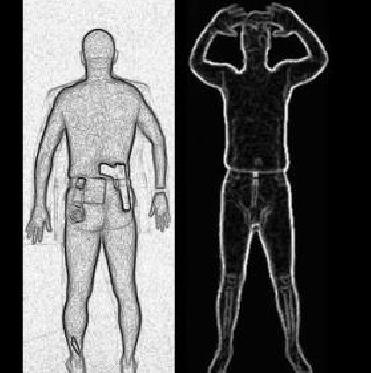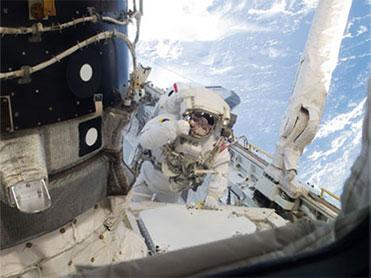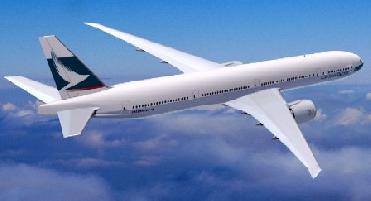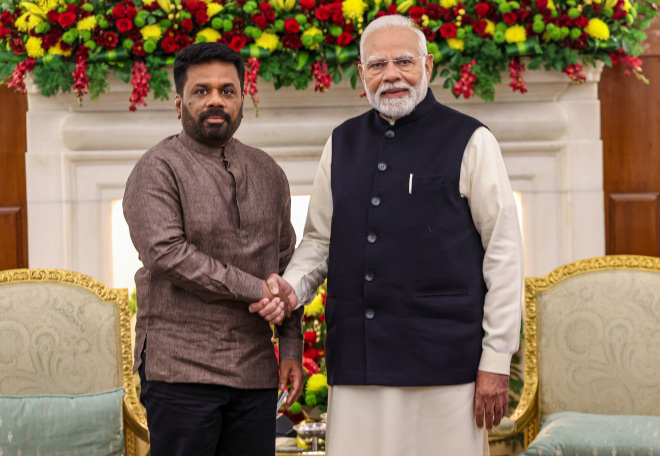
Airport full body scanner sample images.
WASHINGTON (PTI): Learning lessons from al-Qaeda's botched Christmas Day attempt to blow up an American plane, the US is installing advanced imaging technology at airports, which can detect liquids, powders, gels and other substances that someone may try to smuggle onto to an aircraft to use as an explosive.
"After the events of December 25, I think it reminded everyone that aviation remains a target of al-Qaeda, and how important it is going to be for us to work in a variety of ways to keep improving aviation security," Homeland Security Secretary, Janet Napolitano, said during a tele-conference on aviation security.
At domestic airports, authorities are installing advanced imaging technology, which is the next iteration of technology beyond the magnetometer, she said.
"It will help us detect liquids and powders and gels, other substances that someone may be trying to smuggle onto a plane and use as an explosive.
"You may see more canine teams. You may see more explosive-detection equipment. You won't see, but there will be present, more behaviour-detection officers," Napolitano said.
These equipments are initially being installed at big airports, Napolitano said.
"There will be different things at different airports, and I think that's important to remind people of. I -- I'm often given the comment that, well, at this airport I had to do this, and at this airport I had to do that. Well, that's on purpose. We do things on a random pattern basis so that those who seek to do us harm can't rely on predictability."
Internationally, the US is working with ICAO, the UN aviation branch, through a series of regional meetings. It already had one meeting in Europe, Mexico City; and the next ones are scheduled in Tokyo; followed by those in Africa and in the Middle East.
The purpose is to agree on common standards for airport security and screening, and therefore give everyone around the world confidence in the aviation environment, Napolitano argued.
"Our goal at the department is to minimise the risk that there can ever be a successful attack on a United States-bound plane," she said, adding that no one can guarantee a hundred per cent success.
"But are there things that we can do, practical, commonsense things using our best technology, which will minimise the risk? Absolutely. And that's what we are implementing now," she said.
The Homeland Security Secretary said the US is doing some very cutting-edge research now at its national labs.
"We've asked them, give us the next iteration of an airport checkpoint so that we're not just being reactive to what has occurred on Christmas, but also being proactive in the sense of really moving forward in the next generation of technology.
"We hope - as we do that, of course, one of our goals is to minimise the inconvenience and the wait times for passengers," she said.
Napolitano said the advanced imaging technology being installed is very safe. "They've been tested in a number of different environments. And we simply would not be able to deploy them in commercial airports if they had not already been certified totally safe," she argued.
Following the December 25 incident, she said more international flights now carry federal air marshals.
"And the President's budget for 2011 adds substantial number of federal air marshals who will be on flights. Of course, they're there. They're there under cover. You don't know when they're there. But they're there to provide an extra layer of protection and deterrence," she said.
Napolitano said the US has been conducting inspections at the last point of departure to the United States. "We always have the power not to permit an international airport as a last point of departure to the United States. That power obviously has not been exercised very often, but it is there.
"And it is one of the ways that we have to work with international airports on their screening, their technology, their manpower, their capacity," she said.
 Previous Article
Previous Article Next Article
Next Article













The Indian Air Force, in its flight trials evaluation report submitted before the Defence Ministry l..
view articleAn insight into the Medium Multi-Role Combat Aircraft competition...
view articleSky enthusiasts can now spot the International Space Station (ISS) commanded by Indian-American astr..
view article